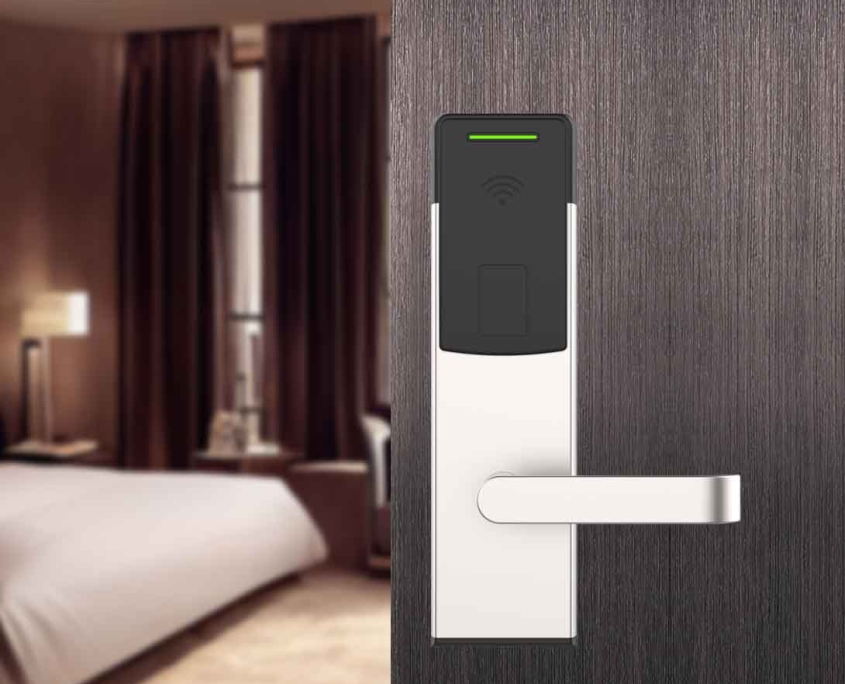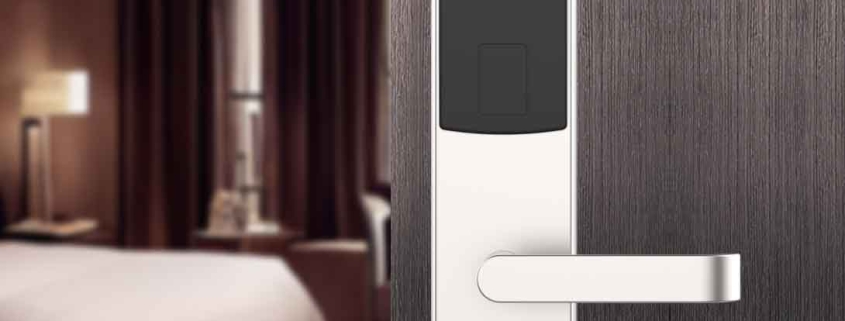How Hotel Door Locks Work?
When you check into a hotel, one of the first things you receive is a key card or a digital code to access your room. But have you ever wondered how hotel door locks actually work? These systems are designed to provide security, convenience, and flexibility for both guests and hotel staff.
In this article, we’ll explore the different types of hotel door locks, how they function, and the technology behind them. Whether you’re a frequent traveler or simply curious about security systems, this guide will help you understand the mechanisms that keep hotel rooms safe.
Types of Hotel Door Locks
Hotel door locks have evolved significantly over the years. Here are the most common types:
1. Traditional Mechanical Locks
In the past, hotels used standard metal keys, much like those for homes. However, these had several drawbacks:
-
Lost keys were a security risk – If a guest lost a key, the hotel had to replace the entire lock.
-
No tracking – Staff couldn’t tell who entered a room or when.
-
Limited flexibility – Keys couldn’t be easily reprogrammed for new guests.
Because of these issues, most hotels have moved to electronic systems.
2. Magnetic Stripe Key Cards
These were the first widely adopted electronic hotel locks. They work similarly to credit cards:
-
The key card has a magnetic stripe encoded with room access data.
-
When inserted into the lock, the reader checks the code and grants or denies access.
Advantages:
-
Easy to reprogram for new guests.
-
Can be deactivated if lost.
-
More secure than traditional keys.
Disadvantages:
-
Magnetic stripes can wear out or demagnetize.
-
Cards can be copied if not properly encrypted.
3. RFID (Radio-Frequency Identification) Key Cards
Many modern hotels now use RFID key cards, which are more durable and secure:
-
Instead of swiping, guests simply tap the card near the reader.
-
The lock communicates wirelessly with the card to verify access.
Advantages:
-
Faster and more convenient than magnetic stripe cards.
-
Less prone to damage.
-
Harder to duplicate without proper equipment.
4. Mobile Key Access (Smartphone-Based Locks)
The latest trend is using smartphones as room keys:
-
Guests receive a digital key via the hotel’s app.
-
The phone communicates with the lock via Bluetooth or NFC.
Advantages:
-
No physical key to lose.
-
Can be sent in advance for contactless check-in.
-
Allows for remote access management.
5. Biometric Locks (Fingerprint or Facial Recognition)
Some high-end hotels use biometric systems:
-
Guests scan their fingerprint or face to unlock the door.
-
Provides high security since biometric data is unique.
Advantages:
-
No need for keys or cards.
-
Extremely difficult to bypass.
Disadvantages:
-
Expensive to install.
-
Privacy concerns for some guests.

How Electronic Hotel Locks Work
Now that we’ve covered the types, let’s dive into how these locks function.
1. The Lock Mechanism
All electronic hotel locks have two main components:
-
The locking mechanism – This is the physical part that secures the door.
-
The electronic reader – This verifies the key (card, phone, or biometric data).
When a valid key is presented, the lock’s motor disengages the bolt, allowing the door to open.
2. The Control System
Most hotels use a centralized system to manage locks:
-
Front desk software – Assigns access codes or keys to guests.
-
Master keys – Allow staff (like housekeeping) to enter rooms when needed.
-
Audit logs – Track who enters a room and at what time.
If a guest loses a key, the hotel can deactivate it and issue a new one without changing the lock.
3. Power Source
Electronic locks need power to function. They typically use:
-
Batteries (most common) – Last several months before needing replacement.
-
Hardwired power – Found in some high-end hotels for reliability.
Many locks have low-battery indicators to alert staff before they fail.
Security Features of Hotel Door Locks
Hotels prioritize security to protect guests. Here’s how modern locks enhance safety:
1. Encryption & Anti-Hacking Measures
-
Modern RFID and mobile keys use encryption to prevent cloning.
-
Some locks have rolling codes that change after each use.
2. Automatic Locking
-
Many doors automatically relock after a set time to prevent accidental openings.
3. Restricted Access
-
Staff keys are programmed to work only during certain hours (e.g., housekeeping from 9 AM–5 PM).
-
Master keys can be deactivated if lost or stolen.
4. Emergency Overrides
-
In case of fire or other emergencies, hotels can unlock all doors remotely.
Common Issues & Troubleshooting
Even the best systems can have problems. Here’s what might go wrong and how hotels handle it:
1. Key Card Not Working
-
Possible causes: Demagnetization, dead battery in the lock, or incorrect programming.
-
Solution: Guests can get a new key at the front desk.
2. Dead Battery in the Lock
-
Solution: Most hotels have backup procedures (like manual overrides or staff with emergency keys).
3. Forgotten Key Inside the Room
-
Solution: Guests can request staff assistance for entry (after identity verification).
The Future of Hotel Door Locks
Technology continues to evolve. Future trends may include:
-
Voice-activated locks – “Open door” commands via smart assistants.
-
AI-powered security – Detecting suspicious behavior (e.g., repeated failed access attempts).
-
Blockchain-based keys – Ultra-secure digital keys that can’t be duplicated.
Conclusion
Hotel door locks have come a long way from simple metal keys. Today’s systems use advanced technology to provide security, convenience, and flexibility. Whether it’s a magnetic stripe card, an RFID key, or a smartphone-based entry, these locks ensure that only authorized guests can access their rooms.
Next time you check into a hotel, take a moment to appreciate the engineering behind your room key—it’s a small but crucial part of your travel experience!
Would you prefer a traditional key card or a smartphone-based lock? Share your thoughts!









